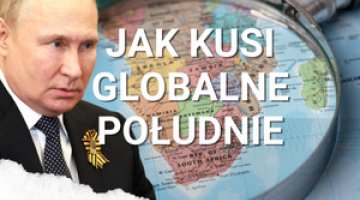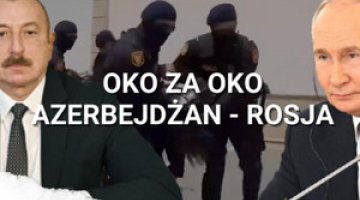The Baltic states: Concern about the Russian intervention in Ukraine
The Russian intervention in Ukraine is seen as a serious precedent which raises concerns about the safety of the territorial sovereignty of the Baltic states in the future. The Lithuanian minister of foreign affairs, Linas Linkevicius, branded Russia’s moves in Crimea as occupation. He called upon the international community to respond adequately to Russia’s actions and backed the imposition of sanctions. Meanwhile, the prime minister and the president of Lithuania, despite their strong criticism of Russia’s actions, are opposed to sanctions being imposed since this would adversely affect the economic interests of Lithuania. Prime Minister Algirdas Butkevicius, a Social Democrat, has called for dialogue with Russia. In turn, the minister of foreign affairs, who is from the same party, claims that Russia has adopted a non-constructive stance, and Putin has been avoiding dialogue and mediation. Manoeuvres by Russia’s Baltic Fleet were viewed as an attempt to put pressure on the countries in the region. The government has also denied the false information which is being given much publicity in the Russian media that fighting squads responsible for inciting unrest in various regions of Ukraine had been trained in Lithuania.
Commentary
- The sentiments in Lithuania, as in Latvia and Estonia, are reminiscent of those seen during the Russian aggression on Georgia. The government’s assurances that there is no direct threat to the Baltic region are convincing neither to commentators nor the right-wing political opposition. Although the Lithuanian government’s consultations with their partners from NATO and the EU have improved the sense of security in the region, the political right in Lithuania views Germany’s attempt at dialogue with Russia as alarming. The commonly shared view is that Russia still desires to reconstruct its empire, and Lithuania and the other Baltic states are in the sphere of its interest. The Baltic states have noticed Russia’s attempts to interfere with their internal policies. Nationalist circles have condemned pro-Russian political forces (such as Estonia’s Centre Party led by Edgar Savisaar, who branded Ukraine’s new government as self-appointed and illegitimate) and escalating ethnic divides in the Baltic states (they have strongly protested against Russia’s promise to organise its own network of Russian schools in these states).
- The threat of Ukraine being divided and the concern about Russia’s aggressive moves, including with regard to the Baltic states, have fomented nationalist tendencies. In the case of Lithuania this means not only fuelling anti-Russian sentiments, as in Latvia and Estonia, but also fears of separatist actions from the Polish minority in Vilnius region, a territory with distinct ethnic and linguistic structure. Nationalist and right-wing circles in Lithuania have long been accusing the Electoral Action of Poles in Lithuania of yielding to the Kremlin’s influence and of having contacts with the Putin administration.
- The intensified consultations between the Baltic states and their NATO partners have provided the opportunity to raise the issue of defence spending once again. The president of Estonia, Toomas Hendrik Ilves, has been calling for this for a long time and has expressed regret that the neighbouring countries have failed to finance their respective defence systems at the NATO standard level of 2% of GDP, unlike Estonia. This problem has also been raised over the past few days by the president of Lithuania, but the minister of finance has deemed it unrealistic to raise defence spending within a short time from the planned level of 0.78% of GDP to 2%.





